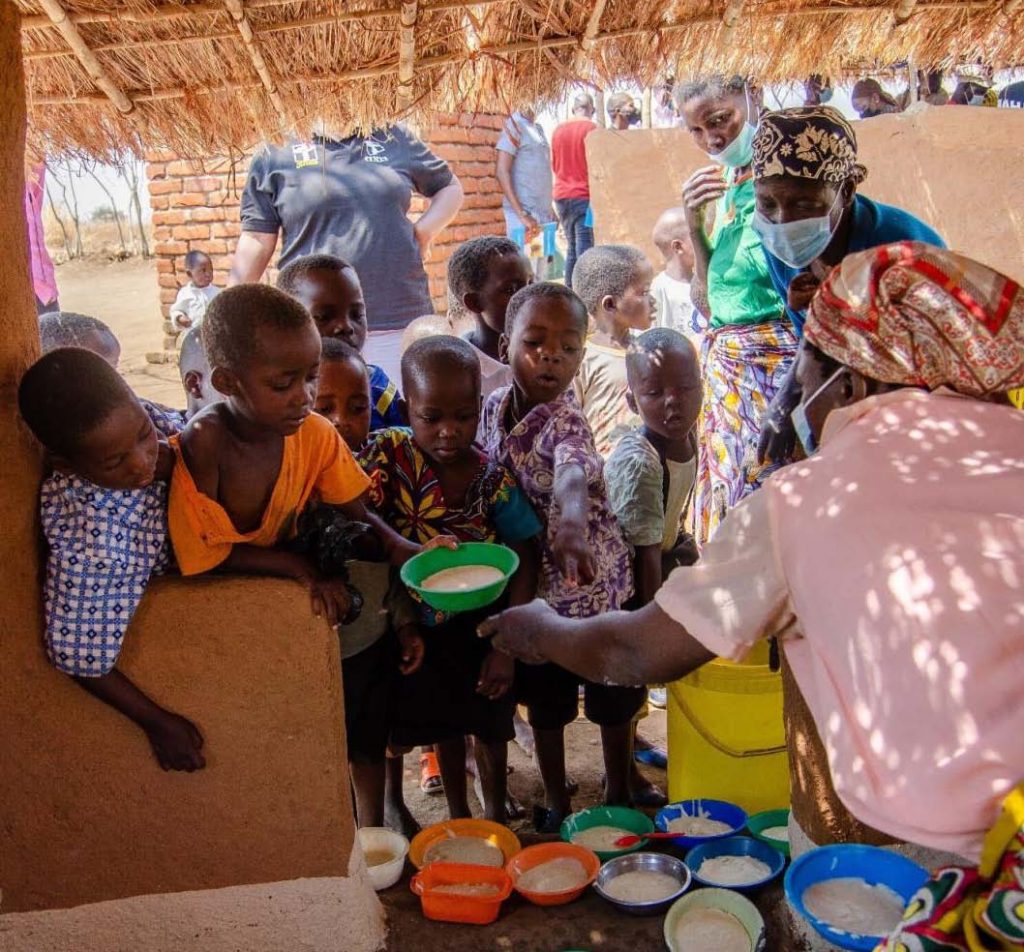Eat, play, love
Early childhood development (ECD) brings hope for a bright future, writes LULUTANI TEMBO from Unicef Malawi.
Chagunda Community-Based Childcare Centre (CBCC) is a small shed along a dirt road in rural Salima.

From Monday to Friday, 145 children aged two to five spend most of their time there as beneficiaries of early learning.
Angela Kwereza, one of the trained caregivers at the CBCC which serves as a church during weekends, knows the importance of early stimulation for children below five years old.
“At the centre, we teach children how to count from one to ten; we do fun physical activities for their age to keep them fit; and also do simple quizzes to accelerate their thinking and brain development,” she says.
Kwereza, 23, who has a three-year-old daughter doing early learning at the CBCC, sometimes meets children who have never been to the centre.
“When we come across such children, we tell parents that as soon as they turn two, it’s vital to send their children to a CBCC as it helps them make friends, interact with others and boosts their intelligence,” she explains.
Early learning marks a firm start of a child’s journey to becoming a productive adult and every stage of education that follows relies on its success.
Early childhood development also offers children a child-friendly environment to interact and learn from others.
Mercy Steven has worked at Chagunda CBCC for a year. She is excited that the caregivers’ work is shaping children in the community to recite and write vowels, outclassing some Standard One pupils who missed early learning.
“We have parents congratulating us for the great work we are doing for the children, which contributes to their learning and being able to develop socially. The children are learning so much at a young age,” she says.
Currently, over 22 children are ready to enrol in primary school next month.
The community contributes foodstuffs such as flour, maize, beans and soya to provide nutritious porridge for children every morning at the CBCC.
The caregivers are encouraged to make toys from locally available resources for children.
“We stitch dolls for them and also give them clay to make their own play materials,” Steve adds.
Since play is essential to early childhood development, Kwereza practices what the caregivers teach by playing with her baby at home.
“I give her plastic bottles to play with sand, we play games together with a ball and I also talk to her a lot. She is able to grasp what I’m saying and responds. I know this is good for her growth,” she says.
New approach
Care for child development is an early childhood development technique that integrates health, nutrition, education and child protection when caring for children.
Currently eight-month-pregnant, Kwereza applies the new technique to her unborn child.
“My husband always rubs my belly to interact with our unborn baby. He enjoys it so much and has already given the baby a name,” she boasts.
For the couple, rubbing the pregnancy shows love to the unborn baby and helps make it familiar with its father.
“My husband also helps me cook and makes sure I eat food from the six food groups. Sometimes, he’ll pick mangoes for me from a nearby tree so that I am healthy. He also accompanies me to pre-natal checkups at the health centre,” Kwereza says.
The caregiver conducts door-to-door visits in her village, where she urges pregnant women to do what she does.
She encourages mothers with newborns to show the babies love and play with them as it builds trust and boosts early stimulation. Exclusive breastfeeding is equally crucial.
Kwereza explains: “I share with the mothers the importance of the first milk that babies get as soon as they are born.
“When my baby is born, I will provide the first milk immediately to develop our bond and breastfeed her exclusively from then onwards to make sure she’s well-nourished.”
Early Moments Matter
With funding from Unicef Finland, Unicef Malawi and the Ministry of Gender, Community Development, and Social Welfare launched an ECD campaign called M’mera Mpoyamba (early moments matter).
The year-long campaign aims to create greater awareness about the importance of healthy brain development in the earliest years of life, increase investment in ECD programmes, policies, and services, and support parents and caregivers to give all children the best start in life.
Everyone has a part to play in promoting ECD.
Mothers and caregivers such as Kwereza are living examples. They raise awareness in their communities and practise what they teach.
Kwereza admittedly loves her job because she knows it is making a positive contribution to the lives of children in her village.
“I wish I went to a CBCC when I was young, but I never had the opportunity. I bring my child to the CBCC because I know it will help her to have a bright future,” she says.





